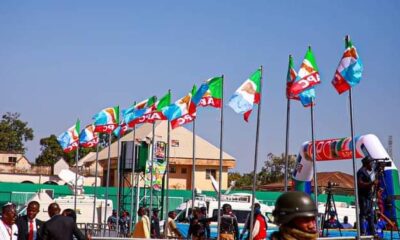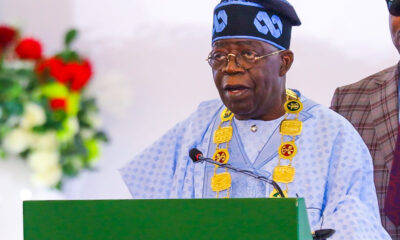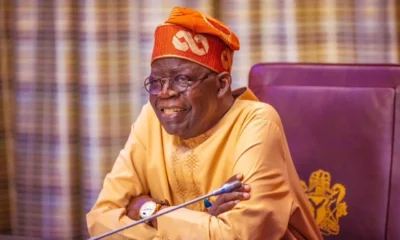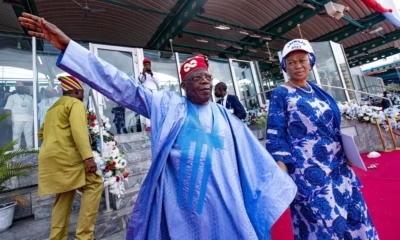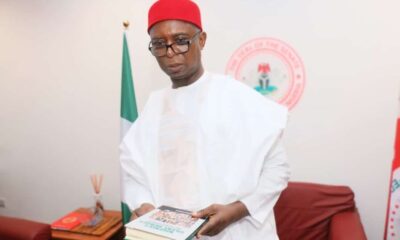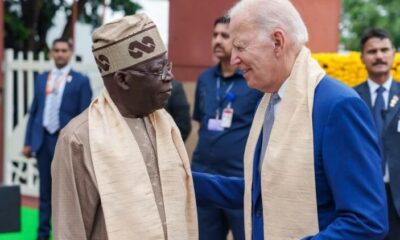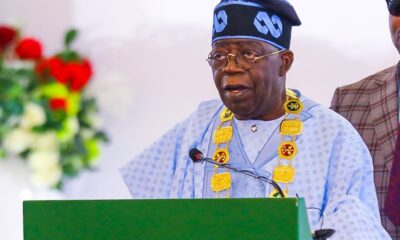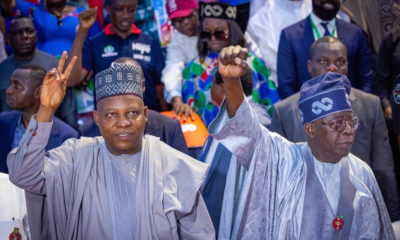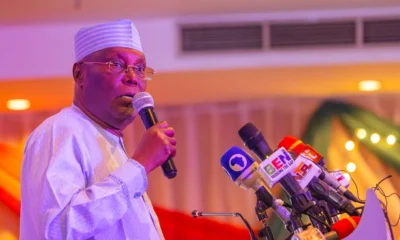NEWS
Godswill Akpabio to be Interim President if Court verdict shifts

Tension builds as the Nigerian Supreme Court is set for the hearing of the appeals of 2023 Presidential candidates, Abubakar Atiku and Peter Obi regarding the 2023 general elections.
Nigeria’s Senate President, Godswill Akpabio could just about become the most popular man in the country, and perhaps on an interim, the first man of the country should the Supreme Court appeals of Abubakar Atiku and Peter Obi go against current President, Bola Tinubu.
The Nigerian Supreme Court is set to hear appeals challenging the outcome of the 2023 presidential election, which had initially affirmed Bola Ahmed Tinubu as the victor.
The appeals, filed by 2023 presidential candidates Atiku Abubakar of the Peoples Democratic Party (PDP) and Peter Obi of the Labour Party, have created palpable tension and suspense across the nation.
Should the court rule in favor of these candidates, it could lead to a significant shift in the country’s political landscape.
The Presidential Election Petitions Court (PEPC) previously upheld Tinubu as the legitimate winner of the February 25th election. However, the pending Supreme Court case has thrown the political arena into turmoil.
The applicants challenging the verdict include the Allied Peoples’ Movement (APM), and if the Supreme Court decides in their favor, the current President, Bola Ahmed Tinubu, and his Vice President, Kashim Shettima, would be required to vacate their respective offices.
In this scenario, the third-highest official in Nigeria’s political structure, according to the constitution, would assume the highest office in the land. The Senate President, Godswill Obot Akpabio, would be next in line, serving as the Interim President for a designated period.
A legal expert, Akan Udoh, has clarified that there is no controversy surrounding this constitutional provision.
He stated,
“The 1999 Constitution (as amended) explicitly stipulates that the Senate President, in this case, Godswill Obot Akpabio, would act in that capacity for 90 days, within which an election must be held.”
The Nigerian constitution and electoral laws mandate that the President and Vice President, as well as State Governors and their deputies, campaign and stand for election together, effectively having similar mandates from the electorate.
Therefore, a vacancy in the presidency would necessitate a temporary replacement by the Senate President until a new election could be conducted.
As the Senate President takes office temporarily, the Independent National Electoral Commission (INEC) would be tasked with organizing a fresh election for the two highest offices in the country within a strict time frame of three months (90 days).
Section 146 (2) of the Constitution outlines the specific powers granted to the Senate President in such a scenario.
The section reads,
“Where any vacancy occurs in the circumstances mentioned in subsection (1) of this section during a period when the office of Vice-President is also vacant, the President of the Senate shall hold the office of President for a period of not more than three months, during which there shall be an election of a new President, who shall hold office for the unexpired term of office of the last holder of the office.”
This provision is clear that if the President’s office becomes vacant due to death, resignation, impeachment, removal, or permanent incapacity, and the Vice-President is unavailable to assume the role, the President of the Senate, in this case, Godswill Akpabio, would step in as Interim President for three months, during which a new President would be elected to complete the remaining term.

